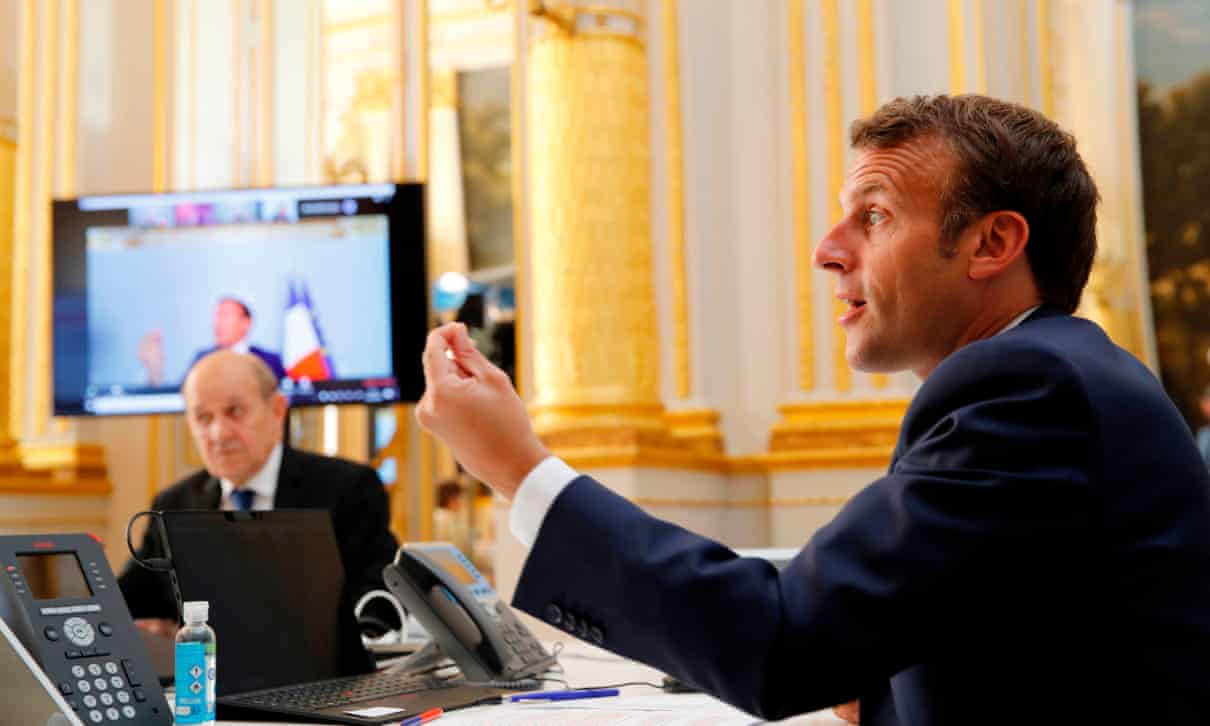

April 25, 2020
Global leaders have pledged to accelerate cooperation on a coronavirus vaccine and to share research, treatment and medicines across the globe. But the United States did not take part in the World Health Organization initiative, in a sign of Donald Trump’s increasing isolation on the global stage. The cooperation pledge, made at a virtual meeting, was designed to show that wealthy countries will not keep the results of research from developing countries. The meeting also represented a symbolic endorsement of the United Nations body in the face of Trump’s decision to suspend US payments and condemn its leaders as subordinates of the Chinese Communist party. China and the US have accused each other of bullying and disinformation over the coronavirus outbreak, damaging efforts to secure cooperation at the G20, the natural international institution to handle global health outside the UN.The hunt for a coronavirus vaccine – a perilous and uncertain pathRead more Instead an ad hoc grouping of 20 world leaders and global health figures were on the call, including the German chancellor, Angela Merkel, the French president, Emmanuel Macron, and the American philanthropist Bill Gates. Britain will co-chair a joint coronavirus global response summit on 4 May aimed at raising funds for vaccine research, treatments and tests.
Macron told the meeting: “We will continue now to mobilise all G7 and G20 countries so they get behind this initiative. And I hope we will be able to reconcile around this joint initiative both China and the US, because this is about saying the fight against Covid-19 is a common human good and there should be no division in order to win this battle.” The WHO director general, Tedros Adhanom Ghebreyesus, said: “We are facing a common threat that we can only defeat with a common approach. Experience has told us that even when tools are available they have not been equally available to all. We cannot allow that to happen.” More than 100 potential vaccines are being developed, including six already in clinical trials, according to Seth Berkley, the chief executive of the Gavi vaccine alliance, a public-private partnership that leads immunisation campaigns in poor countries.
Berkley said it was critical that there was not a repeat of the experience in 2009, when the H1N1 vaccine did not reach developing countries until very late. The US mission in Geneva confirmed there would be no official US participation, but said it looked forward to the outcome of the WHO meeting.
Five pledges were agreed on the call:
The heavily multilateral tone of the pledges contrasts with many countries’ immediate reaction to the outbreak, when countries banned the export of their medical equipment, closed borders and even tried to steal equipment from one another. The degree of cooperation over the vaccine research has also been patchy at best. The meeting also agreed to appoint two new special envoys to lead global cooperation on vaccine research and to help ensure equal access to any successful vaccines. Sir Andrew Witty, the British former head of the global drugs giant GSK, was appointed alongside Dr Ngozi Okonjo-Iweala, the chair of Gavi. Britain has been one of the biggest supporters of the global effort to find a coronavirus vaccine, providing £250m for international research on the disease at the Coalition for Epidemic Preparedness Innovations.
Health Sansar provides a wealth of trending topics that allow individuals to stay updated and informed about the latest developments in the health and wellness domain. Health Sansar offers a comprehensive platform for users to access current and relevant information in the ever-evolving field of health.